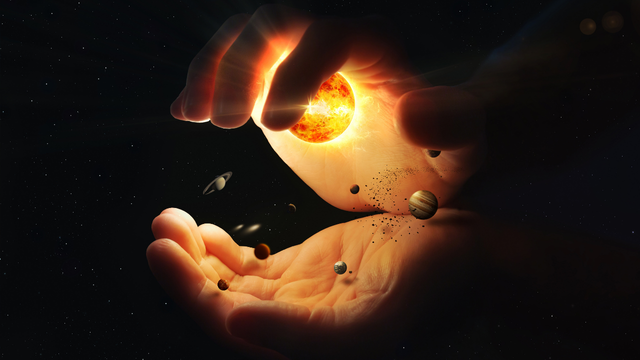Understanding God's Omnipotence
How do we understand God's omnipotence? In this article, we'll look at Locke's view of infinite power, Quine's conception of maximal power, and Kushner's definition of omnipotence. Finally, we'll discuss the stalemate between God and humanity. Then, we'll explore how God can change our minds about ourselves and the nature of reality.

God's omnipotent power
The King James version of the Bible asserts that God is omnipotent, indicating that He is the owner of all powers, including the ability to destroy and create. This claim is consistent with passages from Genesis 17:1 and Psalms 33:8-9. Much of the Old Testament narrative describes God's interaction with creation through persuasion, not power. In the same vein, the Hebrew Bible asserts that God is omnipresent and omniscient, indicating that he is immutable.
The problem with Polkinghorne's position is that it has no clear definition of what 'omnipotence' is. Rather, he argues that God's omnipotence is accompanied by a principle of kenosis, which allows other than God to exist. Kenosis, however, is not a contradiction, but rather a volitional restriction of God's power.
Locke's understanding of infinite power
In a nutshell, Locke viewed omnipotence as unlimited power. The concept of infinity has many facets. One view is based on the idea that there are an infinite number of natural numbers. Hence, the question, "How many are there?" can be answered using the cardinal number 0 instead of the infinite cardinal number. The other view emphasizes the need for a sovereign agent to accomplish certain things.
A third interpretation is that infinite power can bring about an unlimited number of states of affairs. This interpretation makes the concept of omnipotence difficult to pin down because it cannot be quantified. Therefore, the idea of infinite power has multiple ramifications and is difficult to define clearly. This makes the concept of omnipotence somewhat problematic until more clarity is attained. But if one is able to narrow down the definition of omnipotence, then a clearer view of this concept can be established.
Quine's view of maximal power
The view of maximum power as a way of life in the world that justifies human actions has its roots in the philosophy of science. As such, Quine attaches great value to the minimal mutilation of past doctrine. On the other hand, he rejects the a priori element in human knowledge. This view is consistent with Carnap's idea of the world as a human construct.
In his essay On Stimulus to Science, Quine explains the origins of his view in the history of empiricism. He then outlines his mature position on philosophical issues. In On Quine: New Essays, edited by Marco Santambrogio and Paolo Leonardi, Quine clarifies his position on epistemology, ontology, mathematics, and logic. This is important because Quine's view on the origins of knowledge has implications for many disciplines.
Quine's view of stalemate
In The Philosophical Investigation, Quine argues that philosophical concerns about stalemates are largely unreal, arising from vague and dissolved conceptual problems. These worries are also often unfounded and, therefore, cannot be considered valid. The philosophical problem, a stalemate, is a conflict between competing viewpoints that do not have a unified resolution. In response to this paradox, Quine argues that we should not try to solve this conflict through philosophy, but instead focus on the process of the inquiry.
In the Philosophical Investigation, Quine breaks with the a priori conception of philosophy's relation to science. He finds himself more sympathetic to the empiricist tradition, which rejects the attempt to preserve the a priori status of mathematics and logic, and rejects the distinction between synthetic and analytic statements. Ultimately, the stalemate is an inevitable consequence of a conflict between competing philosophies.